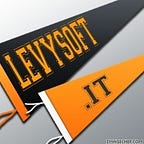The Influence of Science Fiction on Silicon Valley
English translation of an italian post that was originally published on Levysoft.it
We are living in an era where science fiction and reality are merging in truly fascinating ways. Have you noticed this trend as well? Modern technologies seem increasingly influenced by science fiction stories, to the point that they have converged in certain fields.
A perfect example is the new ChatGPT-4o by OpenAI. As soon as it was launched, everyone started comparing it to Spike Jonze’s film “Her,” where Joaquin Phoenix falls in love with an artificial intelligence voiced by Scarlett Johansson. And it’s not just a coincidence: OpenAI deliberately chose a voice for its vocal agent very similar to Johansson’s, and CEO Sam Altman simply tweeted “Her,” highlighting the obvious inspiration.
The Visionaries of Technology and Their Personal Dystopias
The reference to “Her” is not an isolated case. Elon Musk described his Cybertruck as the vehicle a character from “Blade Runner” would drive, while Mark Zuckerberg draws inspiration for his metaverse from novels like “Snow Crash” and “Ready Player One.” These references to dystopian worlds are not merely tributes to science fiction but likely reflect a marketing strategy that views the consumer as the protagonist in an apocalyptic narrative.
For Musk, the Cybertruck becomes a safe haven in a dangerous world, while Zuckerberg’s metaverse promises a digital escape in a disintegrating world. These narratives not only sell products but, according to some, create a sense of belonging to an elite that can survive and thrive despite global adversities.
The Cyberpunk Culture of Silicon Valley
What is certain is that Silicon Valley has always been deeply rooted in cyberpunk culture, where hackers and large corporations create dystopian worlds. Tech entrepreneurs like Musk and Zuckerberg not only embrace this culture but actively promote it among their employees, suggesting readings like William Gibson’s “Neuromancer.” Recently, Elon Musk also cited Ian Banks' "Culture Series" as a utopian, fictional look at a society run by advanced technology, and in his view, the most realistic and best envisioning of future AI.
According to historian Yuval Harari, this culture could lead to an increasingly unequal society, with a long-lived elite of entrepreneurs and a mass of economically irrelevant people. Harari has emphasized that Silicon Valley, while being an incubator of countercultural lifestyles, meditation, and yoga, could become a catalyst for social inequality, creating a technologically advanced ruling class and a class of “useless people.
The Illusion of Artificial Intelligence
But what has led to this convergence between science fiction and reality? Certainly, part of the credit goes to the use of the term “artificial intelligence,” which has shaped our perception of modern technologies. Coined during a seminar at Dartmouth College in 1956, the term led to the belief that machines could be as intelligent as humans. However, as noted by Stephen Wolfram, the renowned physicist and computer scientist, machines are simply programmed tools, whose “intelligence” is the result of algorithms and data. AI, like the ChatGPT chatbot, should be seen as a support for humans rather than a replacement.
Microsoft CEO Satya Nadella shares this view and has recently expressed concerns about the anthropomorphization of artificial intelligence. He argued that AI should be seen solely as a tool and regretted the term “artificial intelligence,” wishing it were called “different intelligence” instead, as AI’s capabilities are not comparable to human intelligence.
Even when their allure is tempered, these tools remain revolutionary. As Altman himself highlights, LLMs like ChatGPT can drastically reduce the costs of retrieving, processing, transporting, and even modifying the collective knowledge of humanity stored in computers worldwide. A user without special equipment or access can request a research report, a story, a poem, or a visual presentation and receive a written response in seconds.
However, some, like professor Geoffrey Hinton, a pioneer of neural networks, have expressed concerns about the impact of AI on society. Hinton has emphasized the need for a universal basic income to mitigate the effects of technological unemployment. He warned that AI could pose an “extinction threat” if not properly regulated and suggested the creation of treaties similar to the Geneva Conventions to manage the military use of AI.
Conclusion
In this brief article, I have only touched upon the interaction between technology, marketing, and dystopian culture. My sole purpose was to prompt reflection on how, as technologies advance, it is essential to maintain a critical perspective and understand the ethical and social implications of innovations. While dystopian narratives are effective in marketing, they should be balanced with a vision that promotes collective well-being and inclusivity. In this context, consumers need to be aware of the mindsets driving technological innovations and actively engage to prevent these dystopian narratives from becoming reality.
